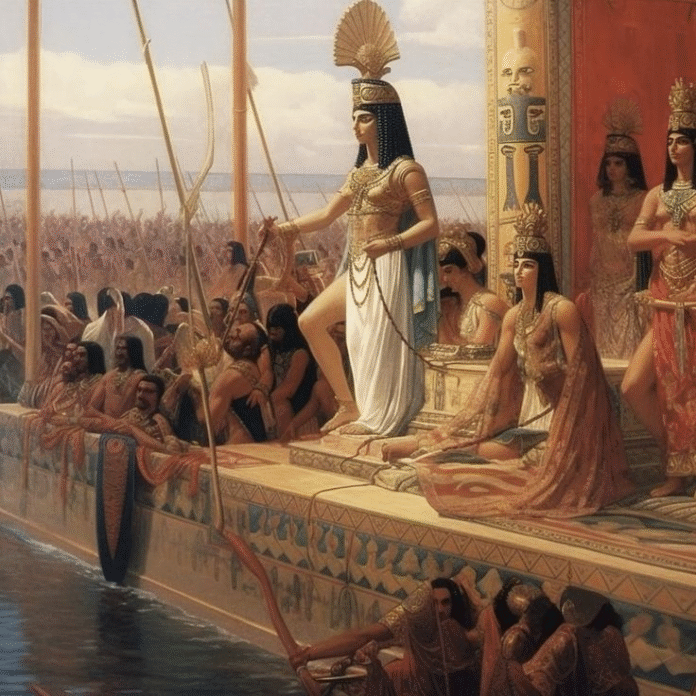Few figures in history have fascinated the world as much as Cleopatra VII, the last active ruler of the Ptolemaic dynasty of Egypt. Popular imagination often reduces her to a symbol of beauty and seduction, but Cleopatra’s legacy goes far beyond appearances. She was a shrewd political leader, a skilled diplomat, and a visionary monarch who fought to preserve Egypt’s independence in a world dominated by Rome. To understand Cleopatra is to see power, intellect, and ambition woven into the life of one of history’s most remarkable women.
A Queen of Many Talents
Born in 69 BCE, Cleopatra inherited the throne at a time when Egypt was plagued by political instability and economic decline. Unlike many of her contemporaries, she was highly educated. Ancient accounts suggest that she spoke multiple languages, including Egyptian, Greek, Hebrew, and possibly Aramaic. Her intelligence allowed her to directly communicate with various groups, a rare skill for rulers of her era. Beyond diplomacy, she was deeply involved in governance, overseeing administrative reforms, economic strategies, and even scientific inquiries.
Political Strategy Over Personal Charm
Cleopatra’s alliances with powerful Roman leaders—Julius Caesar and later Mark Antony—are often portrayed as romantic entanglements. However, they were primarily political strategies. By aligning with Caesar, she secured her throne during a civil war with her brother, Ptolemy XIII. With Antony, she sought to strengthen Egypt’s position against the growing might of Octavian (later Augustus). Cleopatra’s ability to balance personal relationships with political goals reflects her sharp strategic mind.
Defender of Egypt’s Sovereignty
At a time when Rome was expanding its empire, Cleopatra worked tirelessly to preserve Egypt’s independence. She leveraged Egypt’s immense wealth—particularly its grain exports—to negotiate with Rome from a position of strength. Her reign also witnessed efforts to stabilize Egypt’s economy, rebuild temples, and promote Egyptian culture, showing her commitment to both her dynasty and her people.
Cultural Symbol and Propaganda
Cleopatra consciously crafted her image to blend Greek and Egyptian traditions. To Egyptians, she presented herself as the living embodiment of Isis, the goddess of motherhood and magic. To the Greeks and Romans, she was the learned monarch of the Hellenistic world. This dual identity allowed her to unite her subjects while projecting power abroad. Roman writers, however, often portrayed her as a dangerous seductress to justify Octavian’s campaign against her. This propaganda overshadowed her true achievements for centuries.
The Tragic End
Cleopatra’s final years were marked by conflict with Octavian, who sought to bring Egypt under Roman control. After the defeat of her and Antony’s forces at the Battle of Actium in 31 BCE, Egypt’s independence was doomed. Following Antony’s suicide, Cleopatra also chose death—famously believed to be by the bite of an asp—in 30 BCE. Her death marked the end of both her dynasty and Egypt’s status as a great independent power, as it became a Roman province.
Legacy Beyond Beauty
Though her life ended tragically, Cleopatra’s legacy remains powerful. She challenged the stereotypes of her time, ruling as a capable monarch in a male-dominated world. Her story illustrates the complexities of power, gender, and propaganda in history. Modern scholars increasingly view her not as a mere seductress but as a brilliant leader who wielded beauty, intellect, and political acumen to defend her kingdom.
Cleopatra’s name has endured for over two thousand years not simply because of her beauty but because of her extraordinary power and resilience. She stood at the crossroads of two great civilizations—Egypt and Rome—and left a mark that continues to inspire and intrigue. Cleopatra’s true greatness lies not in myth or romance but in her ability to shape history as one of the most formidable women of the ancient world.



